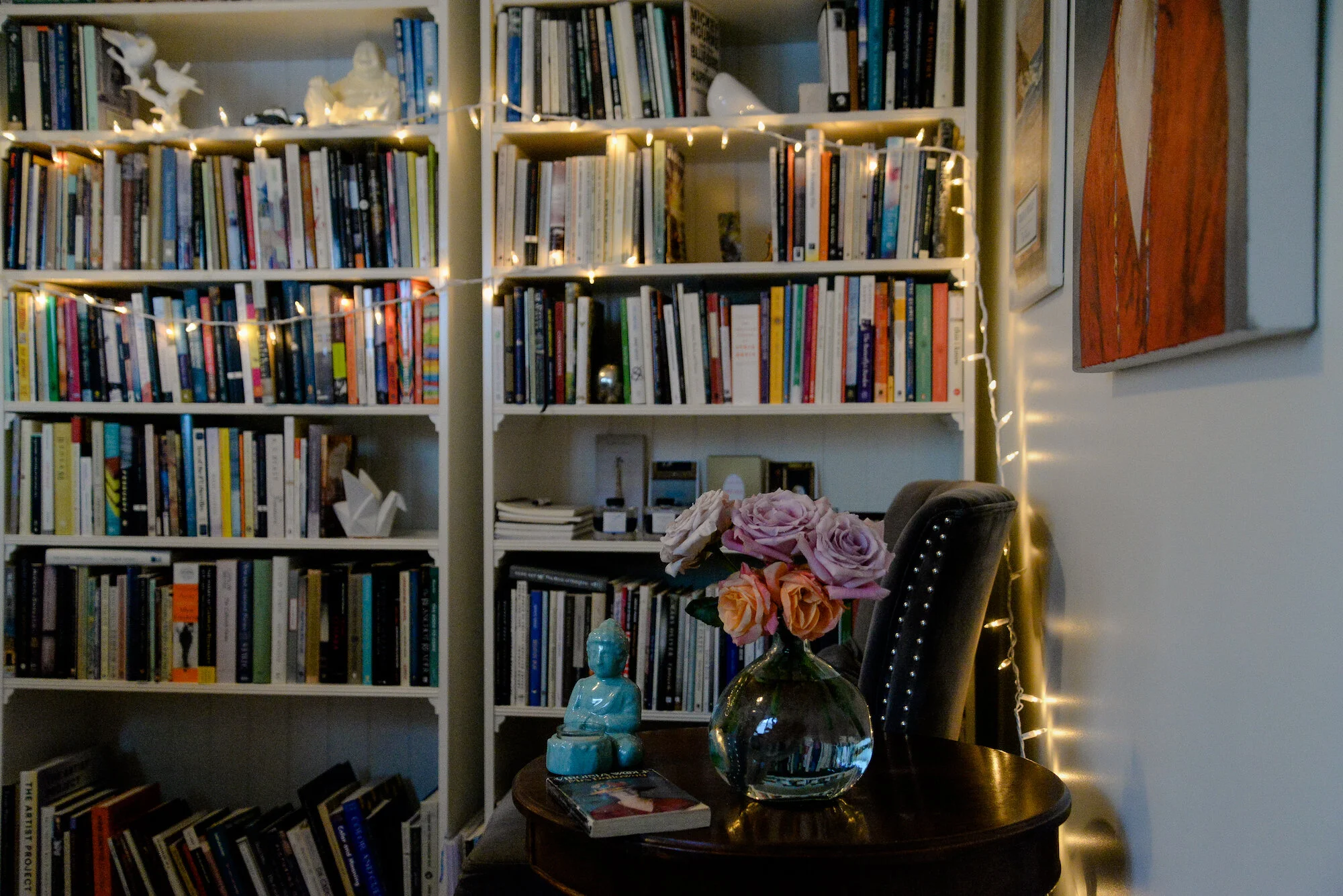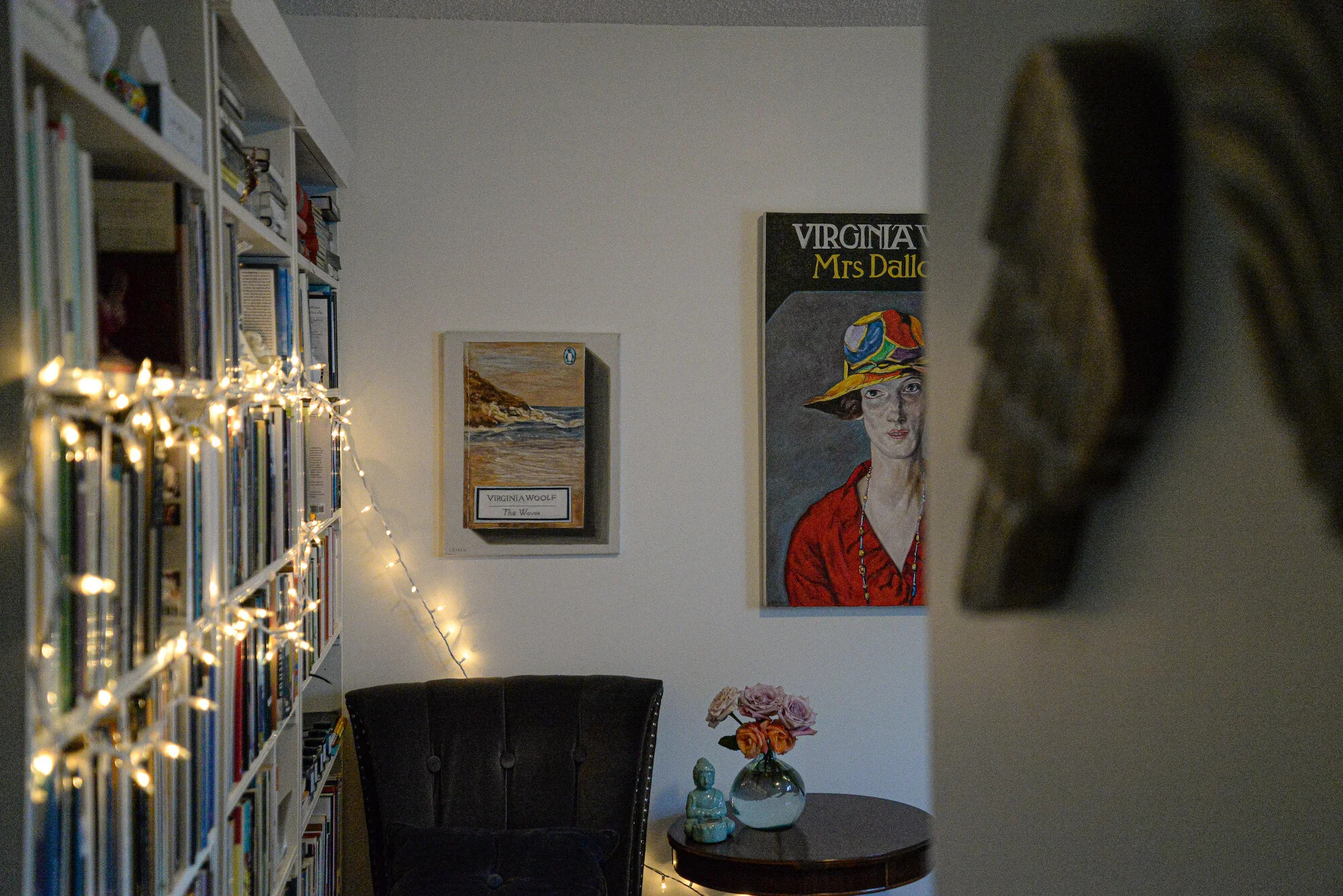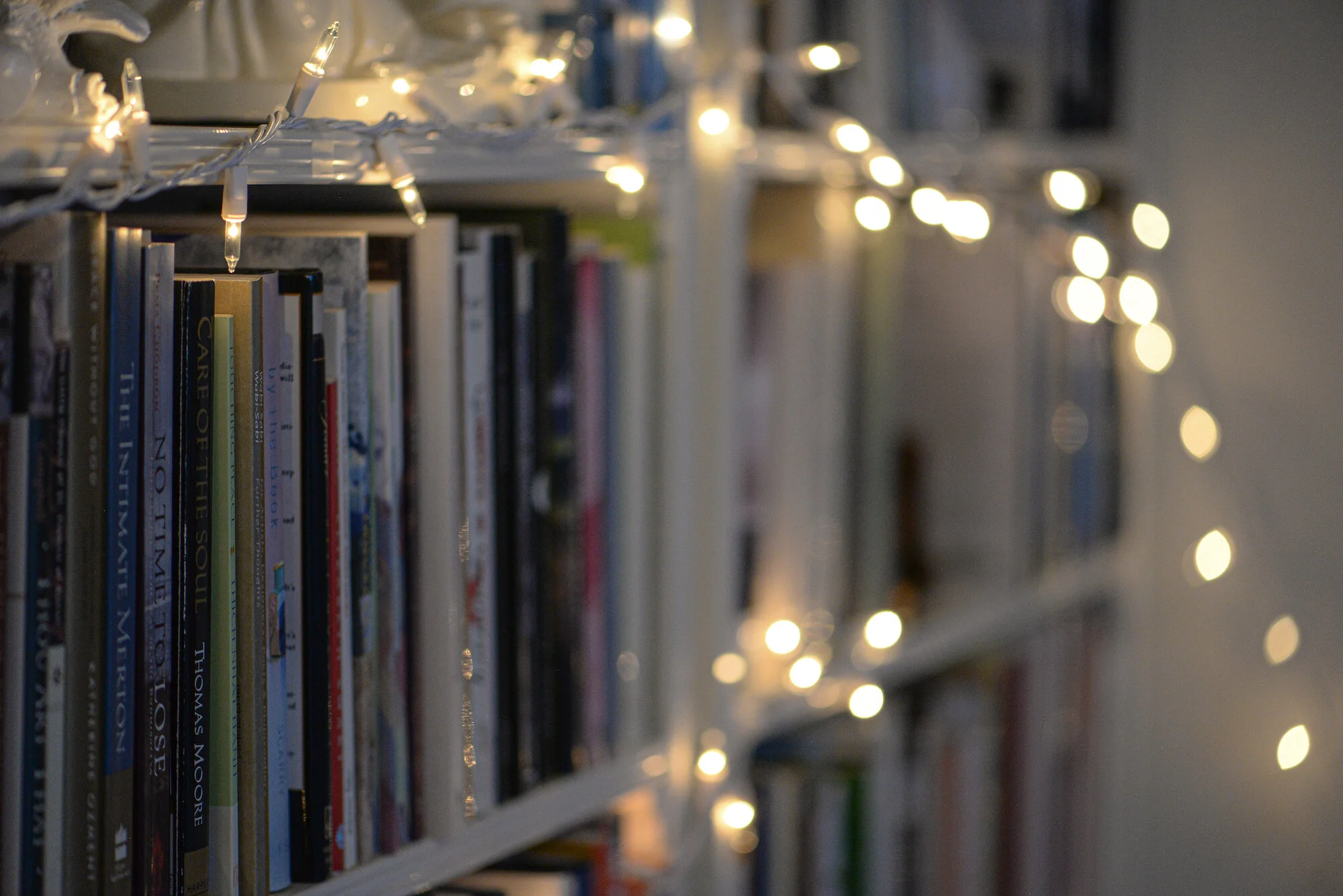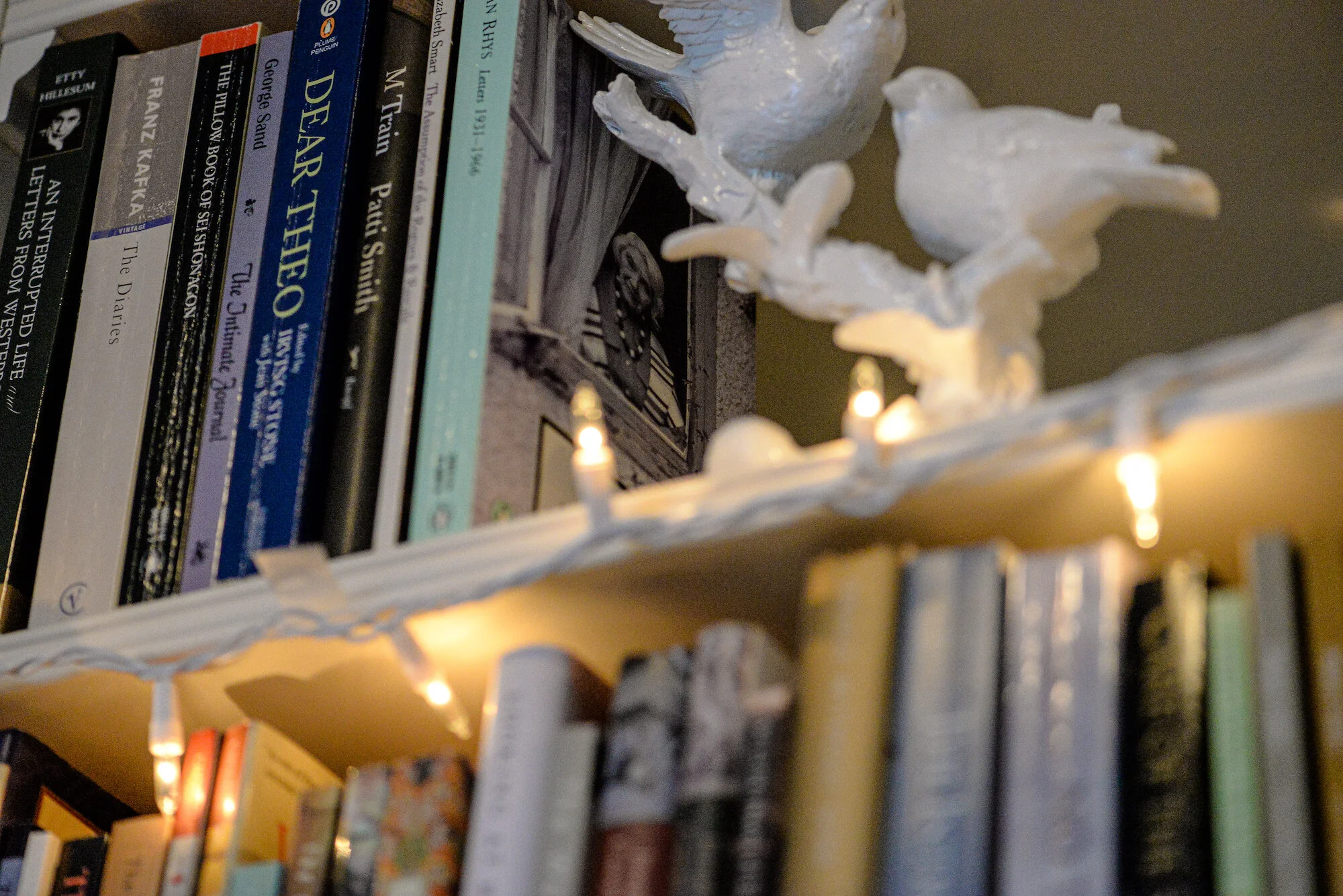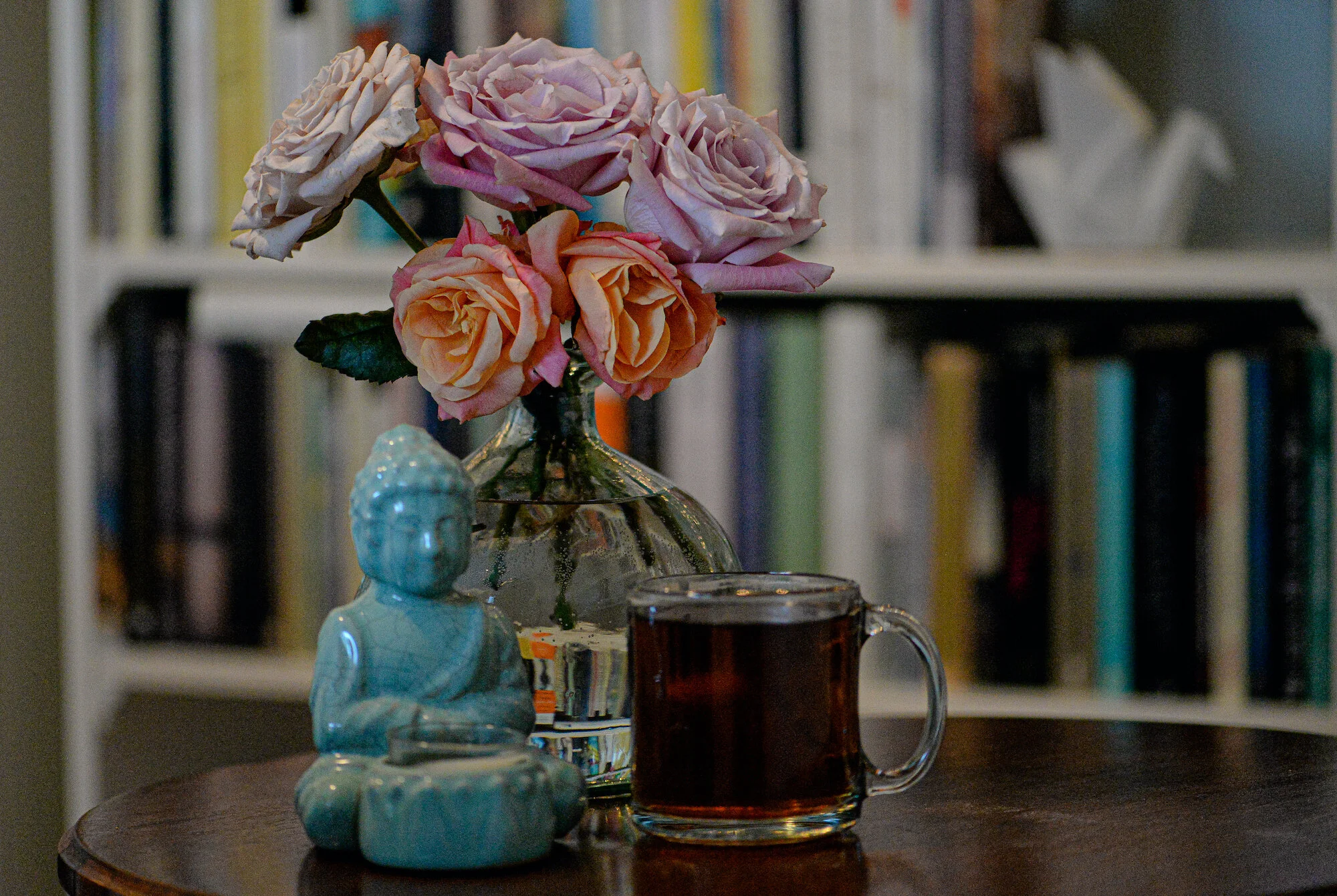Bookbalm — for Writers, Artists and Other Creatives
There’s a lot of book love floating around the internet of late which is happiness inducing. I’ve loved all the book lists coming out at the end of the year. I loved Kerry Clare’s categories and groupings and in general I love the way she talks about books. I love the idea of bibliotherapy at Tolstoy Therapy and her top 10 list. I love Austin Kleon’s list of how to read more. There are a lot of really terrific books lists that come out at this time of year. Lithub has several which are excellent including this one on non-fiction. For my part, I’d rather not think of books in terms of best or categorize them by year, and while I do really believe in the power of bibliotherapy, I thought I would offer up a wee slosh of those books that I have found to be a balm over time. I re-read them, I am soothed by their presence in my room. I have considered the authors of these books as un-met friends. They are solace, sanctuary, comfort, salve. I am these books; these books are me.
So imagine you’re in my study, and I randomly take books off the shelf and read you a line or two from one volume and then another. This is an experiment in how one book calls to another and the first book is To Breathe with Birds by Vaclav Cilek. In the preface he reminds us that Borges “insisted that it is not as important to read books as it is to return to those books that one has already read. We contemplate landscapes and distinguish between them: ‘That one is beautiful, but this one is mine.’ Home is where we return to, and we leave it only so that we may return.” These books are home.
“A book is a landscape, a place, an object, and we need books so that we might cultivate the right feelings in our souls. ”
I might add here that I read for ideas (who doesn’t?) but I also read for sentences, and fragments, and feelings, and for shocks of recognition and beauty and the way words can strike your heart with a bolt like joy or pain and sometimes both simultaneously. In Cilek’s book, he talks about needing “physical contact with objects and places” “in order to be able to have the right feelings in our souls.” A book is a landscape, a place, an object, and we need books so that we might cultivate the right feelings in our souls.
Here I hand you a book by Gaston Bachelard, The Poetics of Space. Yes, you should also read The Poetics of Reverie, but start here. In it he says, “ At certain hours poetry gives out waves of calm. From being imagined, calm becomes an emergence of being. It is like a value that dominates, in spite of minor states of being, in spite of a disturbed world.” From Bachelard, let’s continue to Fernando Pessoa’s The Book of Disquiet. “We may know that the work we continue to put off doing will be bad. Worse, however, is the work we never do. A work that’s finished is at least finished. It may be poor, but it exists, like the miserable plant in the lone flowerpot of my neighbour who’s crippled. That plant is her happiness, and sometimes it’s even mine. What I write, bad as it is, may provide some hurt or sad soul a few moments of distractions from something worse. That’s enough for me, or it isn’t enough, but it serves some purpose, and so it is with all of life.”
Just a few books over, a shelf of books by John Berger. Any of them would do, but how about this one, And Our Faces, My Heart, Brief as Photos. “According to whether we are in the same place or separated from the other, I know you twice. There are two of you.” And “What I did not know when I was very young was that nothing can take the past away: the past grows gradually around one, like a placenta for dying.” And now, let’s sit still. In The Art of Stillness by Pico Iyer, he talks about meeting with Leonard Cohen, “Sitting still as a way of falling in love with the world and everything in it; I’d seldom thought of it like that. Going nowhere as a way of cutting through the noise and finding fresh time and energy to share with others; I’d sometimes moved toward the idea, but it had never come home to me so powerfully as in the example of this man who seemed to have everything, yet found happiness, his freedom, in giving everything up.”
“It is the responsibility of artists to pay attention to the world, pleasant or otherwise, and to help us live respectfully in it.”
Three books by the photographer Robert Adams on my shelf but I first came to him via Art Can Help which begins: “It is the responsibility of artists to pay attention to the world, pleasant or otherwise, and to help us live respectfully in it. Artists do this by keeping their curiosity and moral sense alive, and by sharing with us their gift for metaphor. Often this means finding similarities between observable facts and inner experience — between birds in a vacant lot, say, and an intuition worthy of Genesis. More than anything else, beauty is what distinguishes art. Beauty is never less than a mystery but it has within it a promise.”
Women writing essays. I seem to never get enough of women’s essays. You know my love of Leslie Jamison’s Empathy Exams and her new Make It Scream, Make it Burn. She says, “Sometimes I feel I owe a stranger nothing, and then I feel I owe him everything; because he fought and I didn’t, because I dismissed him or misunderstood him, because I forgot, for a moment, that his life — like everyone else’s — holds more than I could ever possibly see.”
“Some of us do not read or write particularly for pleasure or instruction, but to be changed, healed, charged.”
C.D. Wright is indispensable. From Cooling Time: “If I wanted to understand a culture, my own for instance, and if I thought such an understanding were the basis for a lifelong inquiry, I would turn to poetry first. For it is my confirmed bias that the poets remain the most “stunned by existence,” the most determined to redeem the world in words…” And also: “Some of us do not read or write particularly for pleasure or instruction, but to be changed, healed, charged.”
Krista Tippett is indispensable. From Becoming Wise: An Inquiry into the Mystery and Art of Living: “We all live lives that are complicated and that at times, with infinite variation, feel overwhelming. But we know people in our immediate world who step beyond themselves, into care. If you know them up close, you know they are not saints or heroes — take note of that, and take comfort. Feel how when you extend a kindness, however simple, you are energized and not depleted.”
Anne Boyer’s A Handbook of Disappointed Fate always makes me gasp because it is so unexpected. In an essay, “Take Up and Read,” she says, “Books ruined my life, and I love them.” She also says: “As grim as reading has been for me, reading is not only the private amplification of the human worst. Reading is not merely escapism and militant solitude and everything shirked — that is, reading is not an act exclusive to words and books — and a person can also read the patterns of migrating birds or the lines in a soon-to-be-lover’s palm or the buds of oak trees or the damaged look in an eye or the danger headed this way or the people amassed in the streets. The world existed before books, and it always exists outside of them, and how a person should read is how a person must read, which is at least in duplicate, both always in this world and looking for another.”
“We are all one question, and the best answer seems to be love — a connection between things.”
Madness, Rack, and Honey by Mary Ruefle is big and juicy and full and still somehow leaves one wanting more. She says, “We are all one question, and the best answer seems to be love — a connection between things.”
Fanny Howe in The Winter Sun advises: “One way to understand your own condition is to write something and spend a long time revising it. The errors, the hits and misses, the excess — erase them all. Now read what you have rewritten out loud in front of some other people. They will hear something that you didn’t say aloud. They will hear what was there before you began revising and even before the words were written down. You won’t hear anything but the humming of your own vocal cords.”
“I try to write, so that if a single shard were rescued in the aftermath of some historical disaster, that one shard would be so touching and lucid as to give the future an idea of who we were.”
“I try to write,” says Rachel Blau Duplessis in The Blue Studio, “so that if a single shard were rescued in the aftermath of some historical disaster, that one shard would be so touching and lucid as to give the future an idea of who we were.” She goes on, “It is, of course, an impossible standard but not the less compelling for that reason.” Maybe I discovered Blau Duplessis at the same time as I found Susan Griffin, but one draws me to the other:
“Because within every meeting other meetings occur,” says Griffin in The Eros of Everyday Life. “They take place in the mirror of consciousness. To exist is to reflect and consider. One meets oneself, one sees a trajectory, a certain possible path into what is yet unknown, recalling histories, detecting patterns, weaving the fabric of existence out of every moment.”
And then another shelf over, this ongoing truth in Nicole Brossard’s Intimate Journal, “You have to be insane to confide the essential to anyone anywhere except in a poem.”
Look, now, at this old friend, it’s pages yellowing. The Gift by Lewis Hyde. “An essential portion of any artist’s labor is not creation so much as innovation. Part of the work cannot be made, it must be received; and we cannot have this gift except, perhaps, by supplication, by courting, by creating within ourselves that “begging bowl” to which the gift is drawn.” And also: “So long as the gift is not withheld, the creative spirit will remain a stranger to the economics of scarcity.”
“Creative work can be exciting, inspiring, and godlike, but it is also quotidian, humdrum, and full of anxieties, frustrations, dead ends, mistakes, and failures.”
Another old friend, Care of the Soul by Thomas Moore. “Creative work can be exciting, inspiring, and godlike, but it is also quotidian, humdrum, and full of anxieties, frustrations, dead ends, mistakes, and failures. It can be carried on by a person who has none of the soaring Icarus wishes to abandon the dark shadows of the labyrinth in favour of the bright sunshine. It can be free of narcissism and focus on the problems the material world furnishes anyone who wants to make something of it. Creativity is, foremost, being in the world soulfully, for the only thing we truly make, whether in the arts, in culture, or at home, is soul.”
From Lorri Neilsen Glenn’s Threading Light: “We reach out to community, across centuries and cultures, face-to-face, online, and in the pages of a book. As we travel down new or difficult roads, we find each other to be at once commonly human and radically different souls. We pause at points on the path to consider, stations where we dwell for a time, take stock and reconsider, muse on things, unpack or repack, and then we head out on the road again.”
In Embers, by Richard Wagamese, he says, “I am not here in this life to be well balanced or admired. I'm here to be an oddball, eccentric, different, wildly imaginative, creative, daring, curious, inventive and even a tad strange at times. I'm here to pray and chant and meditate and sing and find Creator in a blues riff, a sunrise, a touch or the laughter of children. I'm here to discover ME in all of that. I'm here to add clunky, chunky and funky bits of me to the swirl and swagger and churn of life and living. It demands I be authentic. So when you look out at the world, that's me dancing in the fields...”
In Audrey Flack’s Art & Soul, she shares from a talk titled, “Experiencing the Poetics of Painting.” “There is a distinction,” she says, “between those artists who produce marketable images, and then produce variations for that market, and those who have resisted market pressures. One stops the flow, while the other allows growth to take place. This process of growing occurs during a total involvement in the creative act. You are not just producing images, but provoking and being provoked by those images. You get involved in a metaphoric revelation and witness metaphors emerging from the work.” She also talks about destiny: “When you are working, you are alone with yourself. You get in touch with your own destiny. Like entering a dream state, the tendency is to disbelieve that that state has validity. But that is the true reality.”
Kyo Maclear in her book Birds Art Life, says, “I like smallness. I like the perverse audacity of someone aiming tiny.” And she asks, “If you pour everything into the tiny vessel for a song and wear out your heart, what is that? Is that small or big? If you choose to put yourself out there on a small stage, singing for the small somebody inside of you, knowing how quickly songs wane, is that modest or gargantuan?”
“No delight you lavish on your work will be wasted on it,” says Juan Ramon Jimenez in The Complete Perfectionist. And I think I would do well to end with a line from Ross Gay’s The Book of Delights, which is a book where the author undertook to write about something delightful every day for a year. In the intro he says, “It didn’t take me long to learn that the discipline or practice of writing these essays occasioned a kind of delight radar. Or maybe it was more like the development of a delight muscle.” He says, that in writing, “I felt my life to be more full of delight. Not without sorrow or fear or pain or loss. But more full of delight. I also learned this year that my delight grows — much like love and joy — when I share it.”
All of this to say, may your work be delightful, and filled with delight. May it cultivate the right feelings in your souls. Go forward, be curious, have courage! Work! May your work be properly difficult, absorbing, deep, and joyful.

